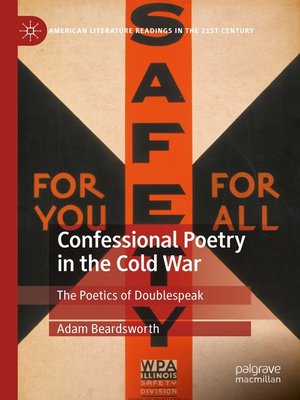Confessional Poetry in the Cold War
ebook ∣ The Poetics of Doublespeak · American Literature Readings in the 21st Century
By Adam Beardsworth

Sign up to save your library
With an OverDrive account, you can save your favorite libraries for at-a-glance information about availability. Find out more about OverDrive accounts.
Find this title in Libby, the library reading app by OverDrive.



Search for a digital library with this title
Title found at these libraries:
| Library Name | Distance |
|---|---|
| Loading... |
This book explores how confessional poets in the 1950s and 1960s US responded to a Cold War political climate that used the threat of nuclear disaster and communist infiltration as affective tools for the management of public life. In an era that witnessed the state-sanctioned repression of civil liberties, poets such as Robert Lowell, John Berryman, Sylvia Plath, Anne Sexton, and Randall Jarrell adopted what has often been considered a politically benign confessional style. Although confessional writers have been criticized for emphasizing private turmoil in an era of public crisis, examining their work in relation to the political and affective environment of the Cold War US demonstrates their unique ability to express dissent while averting surveillance. For these poets, writing the fear and anxiety of life in the bomb's shadow was a form of poetic doublespeak that critiqued the impact of an affective Cold War politics without naming names.







